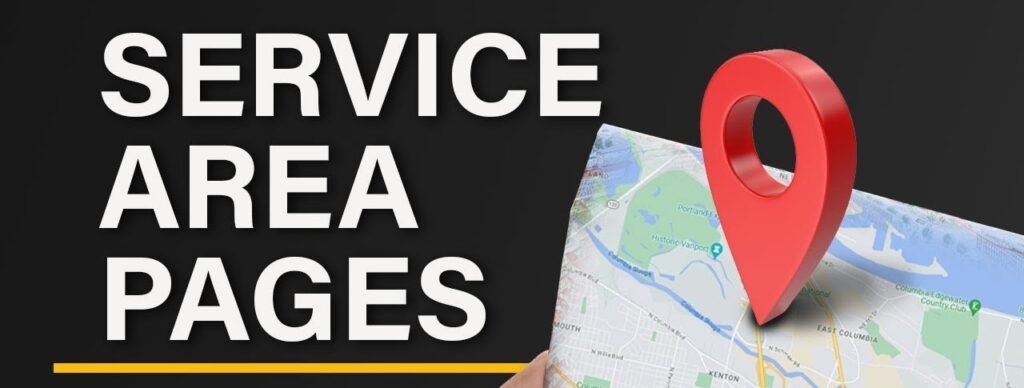How Is Local SEO Different From Regular SEO?
In this blog post, the digital marketing experts at Topper Digital discuss the key differences between local SEO and regular SEO, and why this distinction matters for small businesses in The Woodlands and Greater Houston area.
As a small business owner in The Woodlands, understanding the nuances of different SEO strategies is crucial for your online success. While you may be familiar with SEO in general, it’s important to recognize that local SEO requires a distinct approach. Let’s explore how local SEO differs from regular SEO and why it’s particularly relevant for businesses serving The Woodlands and Greater Houston area.
Key Takeaways:
- Local SEO focuses on improving visibility in specific geographic areas like The Woodlands
- Regular SEO targets a broader, often national or global audience
- Local SEO emphasizes Google My Business optimization and local citations
- Regular SEO concentrates more on overall website authority and content strategy
- Local SEO is crucial for businesses with physical locations or serving specific areas in Greater Houston
Understanding the Basics: Local SEO vs. Regular SEO

Before looking at the specific differences, it’s essential to understand the fundamental concepts of both local and regular SEO. Both strategies aim to improve your website’s visibility in search engine results, but they target different audiences and use distinct tactics to achieve their goals. Regular SEO focuses on improving your website’s ranking on a national or global scale, while local SEO is designed to help your business appear in location-specific searches and map listings.
What are the primary objectives of local SEO and regular SEO?
Local SEO aims to increase your visibility in local search results, particularly for businesses with physical locations or those serving specific geographic areas like The Woodlands. Its primary goal is to appear in the “Local Pack” or “Map Pack” in search results, which shows local businesses with their locations on a map. Regular SEO, on the other hand, focuses on improving your website’s overall organic search rankings, regardless of the user’s location.
Geographic Focus and Target Audience
One of the most significant differences between local and regular SEO lies in their geographic focus and target audience. This distinction is particularly important for businesses in The Woodlands and Greater Houston area, as it directly impacts how potential customers find and interact with your business online.
How does the target audience differ for local and regular SEO?
Local SEO targets users in a specific geographic area, typically within a city, region, or neighborhood. For businesses in The Woodlands, this means focusing on potential customers within The Woodlands and possibly the broader Greater Houston area. The target audience for local SEO often has immediate intent, such as finding a nearby restaurant or service provider.
Regular SEO, in contrast, aims for broader visibility, often on a national or global scale. It targets a wider range of search intents, including informational queries that may not have an immediate local focus. For example, a software company in The Woodlands might use regular SEO to target users across the country interested in their product.
Key Optimization Elements
The strategies and tactics used in local SEO and regular SEO, while overlapping in some areas, have distinct focus points. Understanding these differences is crucial for effectively optimizing your The Woodlands business’s online presence.
What are the primary optimization elements for local SEO versus regular SEO?
Local SEO heavily relies on optimizing Google Business Profiles (formerly Google My Business), managing local citations, and creating location-specific content. For businesses in The Woodlands, this might involve ensuring your Google Business Profile is complete and accurate, getting listed in local directories, and creating content that mentions The Woodlands and surrounding areas.
Regular SEO focuses more on overall website optimization, comprehensive content strategy, and building domain authority. This involves optimizing your website’s technical aspects, creating high-quality content that addresses user needs, and building a strong backlink profile from reputable sources across the web.
Keyword Strategy
The approach to keyword research and implementation differs significantly between local and regular SEO. For businesses in The Woodlands, understanding this difference is key to attracting the right audience and improving your visibility in relevant searches.
How does keyword strategy differ for local and regular SEO?
Local SEO incorporates location-based keywords, such as “best pizza in The Woodlands” or “plumber near me in Greater Houston.” These keywords often include specific geographic terms that potential customers in your area are likely to use when searching for local businesses.
Regular SEO uses broader, non-location-specific keywords related to your business’s products or services. For instance, a tech company in The Woodlands might target keywords like “cloud computing solutions” or “IT managed services” without necessarily including location-based terms.
Search Results Display
The way search results are displayed can vary significantly between local and regular searches. This difference impacts how your business appears to potential customers and can influence their decision to engage with your website or visit your physical location.
How do search results differ for local and regular SEO?
Local SEO aims to get your business featured in the “Local Pack” or “Map Pack” in search results. This prominent display shows local businesses with their locations on a map, along with key information like ratings, address, and phone number. For businesses in The Woodlands, appearing in the Local Pack can significantly increase visibility to nearby customers.
Regular SEO targets organic search results without geographical constraints. These results typically appear as a list of web pages below any local results or paid advertisements. While they don’t have the visual appeal of the Local Pack, they can attract users from a broader geographic area.
Competition Level
The level and nature of competition can vary greatly between local and regular SEO. This difference is particularly relevant for small businesses in The Woodlands looking to establish a strong online presence.
How does the competition level differ in local versus regular SEO?

Local SEO often faces less competition as it’s limited to businesses in the same geographic area. For a business in The Woodlands, you’re primarily competing with other local businesses in The Woodlands and possibly the Greater Houston area. This can make it easier for small businesses to achieve higher rankings in local search results.
Regular SEO typically involves competing with businesses and websites from a much larger geographical area, often resulting in higher competition. For example, an e-commerce store based in The Woodlands might be competing with businesses across the country or even internationally for certain keywords.
Implementation and Results Timeline
The time it takes to see results from SEO efforts can vary between local and regular strategies. Understanding these timelines is crucial for setting realistic expectations and planning your SEO strategy effectively.
How do implementation speed and results timeline differ for local and regular SEO?
Local SEO can sometimes yield faster results, especially for businesses in less competitive local markets like specific neighborhoods in The Woodlands. Actions like optimizing your Google Business Profile and ensuring consistent NAP (Name, Address, Phone number) information across local directories can have a relatively quick impact on your local search visibility.
Regular SEO typically takes longer to show significant results due to broader competition and more complex ranking factors. Building domain authority, creating a substantial amount of quality content, and earning backlinks from reputable sources are long-term strategies that can take months or even years to fully materialize.
Call Your Local SEO Experts in The Woodlands – Topper Digital
Are you ready to optimize your The Woodlands business for both local and regular SEO? At Topper Digital, we specialize in creating comprehensive SEO strategies tailored to the unique needs of small businesses in The Woodlands and Greater Houston area. Our team of experts understands the nuances of both local and regular SEO and can help you leverage the right mix of strategies to boost your online visibility.
Don’t let your business get lost in the digital landscape. Contact Topper Digital today for a free consultation and discover how we can create a customized SEO plan to help your The Woodlands business thrive online.
Frequently Asked Questions About Local SEO vs. Regular SEO for Businesses in The Woodlands
It depends on your business type and target audience. If you have a physical location or serve customers in The Woodlands area, local SEO is crucial. However, if you also want to attract customers from a broader area or offer online services, incorporating regular SEO strategies can be beneficial.
It’s important to keep your local SEO information, especially your Google Business Profile, up to date. Review and update your information at least monthly, and immediately if there are any changes to your business hours, address, or contact information.
When done correctly, regular SEO tactics should not hurt your local SEO efforts. In fact, many regular SEO practices can complement your local SEO strategy. The key is to maintain a balance and ensure that your local-specific optimizations remain a priority for your The Woodlands business.
Customer reviews are extremely important for local SEO. They not only influence your rankings in local search results but also play a significant role in potential customers’ decision-making process. Encourage satisfied customers to leave reviews and respond promptly to all reviews, both positive and negative.
Creating separate pages for different service areas can be beneficial for local SEO, especially if you serve multiple distinct areas within The Woodlands or the Greater Houston region. However, ensure each page has unique, valuable content to avoid duplicate content issues.
Glossary of SEO Terms
1. Local Pack: The section of Google search results that displays local businesses, including a map and business details.
2. NAP: Name, Address, and Phone number – crucial information for local SEO that should be consistent across all online platforms.
3. Google Business Profile: A free tool from Google (formerly known as Google My Business) that helps businesses manage their online presence across Google services.
4. Citation: An online mention of your business’s NAP information, important for local SEO.
5. Organic Search Results: The non-paid search engine results that appear based on relevance to the search query.
6. Domain Authority: A search engine ranking score that predicts how well a website will rank in search engine result pages.
7. Backlinks: Links from other websites to your website, which can improve your SEO for both local and regular strategies.
8. Long-tail Keywords: Longer, more specific keyword phrases that visitors are more likely to use when they’re closer to making a purchase or when using voice search.
9. Schema Markup: A type of microdata that helps search engines understand the context of your website’s content, beneficial for both local and regular SEO.
10. Mobile-first Indexing: Google’s practice of primarily using the mobile version of a website’s content for indexing and ranking, crucial for both local and regular SEO in today’s mobile-centric world.


